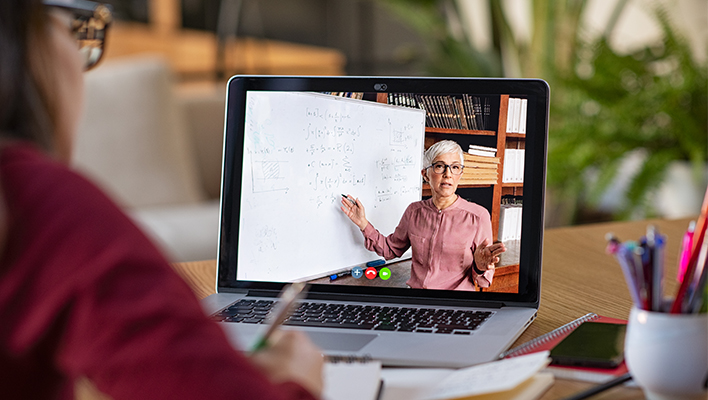
TIME: 11:00 AM - 12:30 PM
Even before the pandemic, loneliness was at an all-time high. One study found that 61% of Americans felt lonely, with inadequate social support, lack of meaningful interactions, and poor physical and mental health as key drivers. When considering that public space often accounts for 50% or more of a city’s urban fabric, it becomes clear that these spaces are a tremendous resource and opportunity for building connections and community. However, in 2021, the World Health Organization declared that climate change is now the greatest threat to global health. When considering urban populations around the globe, extreme weather, both in the summer and winter, can make public spaces unhospitable even for short periods of time. With many vulnerable populations relying on public space, there is an imminent need to find solutions within the public realm that help adapt to and protect against extreme weather events, allowing for a diverse range of users to gather in safe, public environments. And in utilizing environmentally- and climate-friendly materials and designs, we can begin to address the source of the problem, too. These important considerations have brought Perkins Eastman and Project for Public Spaces together to develop inclusive, climate-responsive solutions for the public realm.
Learning Outcomes:
1. Gain valuable insight into public space approaches that prioritize sustainability design in order to combat climate change, while at the same time adapt to and provide shelter from extreme weather events caused by a warming climate.
2. Understand design interventions for mitigating both warm and cold weather in order to make public space inclusive, usable, and safe year-round.
3. Learn how great public spaces can assist rather than displace people impacted by mental illness, housing insecurity, and/or substance use disorders.
4. Discover how small, minimal interventions can meaningfully impact many crises at once, including climate change and extreme weather, housing insecurity, and loneliness.
Speaker:
Lindsay Fischer
Lindsay Fischer works at the intersection of placemaking, urban design and design strategy. Driven by a desire to improve urban lives, she takes a strategic, human-centered approach to design research and analysis. Her intimate knowledge of “place” allows her to engage in interdisciplinary work with a variety of practice areas at Perkins Eastman. Regardless of the focus, be it health care, education or workplace, Lindsay is able to find place-based solutions that promote the human experience. Lindsay holds a Master of Planning from the University of Calgary and a Master of Science in Urban Placemaking and Management from Pratt Institute.
Rebecca Milne
Rebecca Milne’s background in neuropsychology and architecture informs her practice, which focuses on the connection between architecture and the human experience. Her approach applies design thinking through a human-centric lens to find unique solutions that build resilience, create value, and maximize growth. Rebecca works directly with clients to lead visioning, conduct user-centered research, and analyze trends and future possibilities. As a published researcher and designer, Rebecca has pioneered several studies examining collaboration and individualization in the workplace, healthcare, and education environments. Her research and guidance help teams create meaningful spaces for people to live, work, heal, and play.
Elena Madison
Elena Madison is an urban planner with rich experience in the planning and design of parks, plazas, campuses, and outdoor spaces of civic and cultural institutions. Elena leads Project for Public Spaces’ placemaking project work, encompassing community engagement, visioning, concept design, and implementation. She leads several social impact partnerships including Claritin’s Clarity Parks, GAF’s Community Matters, and MassMutual’s Live Mutual initiative, as well as Project for Public Spaces’ own Community Placemaking Grants. Her recent work has also focused on addressing issues of mental health and homelessness in public space, partnering with social service practitioners, advocates, and researchers in the field.
Registration Fee:
Licensed OAA Member: $39 + HST
OAA Interns: $29 + HST
Non-Members: $59 + HST
To register, click here
NOTE:
1. An automatically generated confirmation will be emailed to you (once your registration goes through).
2. Please mark the time and date in your calendar.
3. The OAA will email the Zoom Access Link to you one-day prior.
4. OAA webinars are delivered via Zoom: Please check this Zoom Test Link or speak with your IT Consultant ahead of time, to ensure
your device is compatible with Zoom. For technical concerns, please see the Zoom links for Technical Requirements and also their
Download Centre.
For more information on the OAA Webinar Series click here.
If you have any questions or concerns, contact
OAA Continuing Education
e: OAAContinuingEducation@oaa.on.ca
t: 416.449.6898 Ext: 232
Attendance Policy: Members are required to attend at least 80% of a webinar in order to qualify for Continuing Education learning hours.
Cancellation Policy: Cancellations must be made at least 48 hours prior to the webinar in order to receive a refund. Webinar fees are not refunded if the cancellation is received after the deadline or if you are unable to attend.